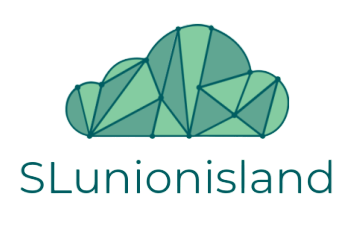The Rise of AI in Hollywood’s Creative Process
The entertainment industry is witnessing a paradigm shift as artificial intelligence makes its way into one of Hollywood’s most sacred creative spaces: screenwriting. This technological advancement has ignited a fierce debate among industry professionals, artists, and technologists about the future of storytelling in cinema. The emergence of AI-generated movie scripts is not just a temporary trend but a development that could fundamentally transform how stories are conceived and told on the silver screen.
Understanding AI-Generated Screenwriting
At its core, AI-generated screenwriting utilizes advanced machine learning algorithms and natural language processing to create narrative content. These systems are trained on vast databases of existing scripts, literary works, and storytelling patterns to understand the fundamental elements of successful storytelling.
How AI Creates Scripts
- Pattern recognition in successful screenplays
- Analysis of story structure and character development
- Implementation of traditional three-act structure
- Generation of dialogue and scene descriptions
- Integration of genre-specific elements
The Hollywood Divide: Supporters vs. Skeptics
The introduction of AI-generated scripts has created a clear division within the entertainment industry. Some see it as an innovative tool that could revolutionize the creative process, while others view it as a threat to the artistic integrity of filmmaking.
The Supporters’ Perspective
Proponents of AI screenwriting tools argue that this technology could democratize the film industry and provide new opportunities for storytelling. They highlight several potential benefits:
- Faster script development and iteration
- Reduced production costs
- Access to diverse storytelling possibilities
- Enhanced efficiency in the writing process
- Ability to analyze market trends and audience preferences
The Critics’ Concerns
Skeptics, including many established screenwriters and directors, raise valid concerns about the impact of AI on the creative process:
- Loss of human emotional depth in storytelling
- Potential homogenization of narrative content
- Job security concerns for human writers
- Questions about artistic authenticity
- Copyright and intellectual property issues
Current Applications and Early Experiments
Several production companies and studios have already begun experimenting with AI-generated scripts, yielding interesting results. These early attempts have provided valuable insights into both the potential and limitations of AI in screenwriting.
Notable AI Script Projects
The industry has witnessed various experiments with AI-generated content, ranging from short films to feature-length scripts. Some notable examples include experimental films created using GPT-3 and other advanced language models, which have demonstrated both the capabilities and current limitations of AI in creative writing.
The Writers’ Guild Response
The Writers Guild of America (WGA) has taken a strong stance on the implementation of AI in screenwriting. Their position reflects the complex balance between embracing technological innovation and protecting writers’ creative and economic rights.
Key Points from the WGA
- Guidelines for AI use in the writing process
- Protection of writers’ credits and compensation
- Ethical considerations in AI implementation
- Standards for human-AI collaboration
Technical Challenges and Limitations
Despite rapid advancements, AI-generated scripts still face significant technical challenges that need to be addressed:
- Difficulty in maintaining consistent character development
- Challenges with long-form narrative coherence
- Limited understanding of subtle emotional nuances
- Inability to create truly original concepts
- Problems with contextual awareness and cultural sensitivity
The Future of AI in Film Writing
As technology continues to evolve, the role of AI in screenwriting is likely to expand, but in ways that might surprise both supporters and critics. The future might not be an either/or scenario between human and AI writers, but rather a collaborative approach that leverages the strengths of both.
Potential Future Developments
- Enhanced AI-human collaboration tools
- Improved natural language processing capabilities
- Better understanding of emotional storytelling
- More sophisticated character development algorithms
- Integration with other aspects of film production
Legal and Ethical Considerations
The emergence of AI-generated scripts raises important legal and ethical questions that the industry must address:
- Copyright ownership of AI-generated content
- Fair compensation models for AI-assisted writing
- Creative rights and attribution
- Industry standards for AI use
- Ethical guidelines for implementation
Impact on the Creative Process
The integration of AI into screenwriting is reshaping the creative process in several ways:
Changes in Writing Workflow
- New approaches to story development
- Modified revision processes
- Alternative collaboration methods
- Enhanced productivity tools
- Different creative thinking patterns
Economic Implications
The adoption of AI in screenwriting has significant economic implications for the film industry:
- Reduced production costs
- Changes in writer compensation models
- New investment opportunities in AI technology
- Impact on traditional writing jobs
- Potential new revenue streams
The Path Forward: Finding Balance
As the debate continues, the industry must work toward finding a balance that harnesses the benefits of AI while preserving the irreplaceable human elements of storytelling. This might involve:
- Developing clear guidelines for AI use
- Creating new collaborative models
- Establishing fair compensation systems
- Protecting creative rights
- Maintaining artistic integrity
Conclusion
The debate over AI-generated movie scripts in Hollywood represents a crucial moment in the evolution of storytelling. While the technology offers exciting possibilities for efficiency and innovation, it also raises important questions about creativity, authenticity, and the future of human storytelling. As the industry continues to grapple with these challenges, the most likely outcome will be a hybrid approach that combines the computational power of AI with the irreplaceable human elements of creativity and emotional storytelling.
The key to success will lie in finding ways to use AI as a tool to enhance rather than replace human creativity, ensuring that the magic of storytelling continues to captivate audiences while embracing the possibilities that new technology brings. As Hollywood navigates this transformative period, the decisions made today will shape the future of film for generations to come.
